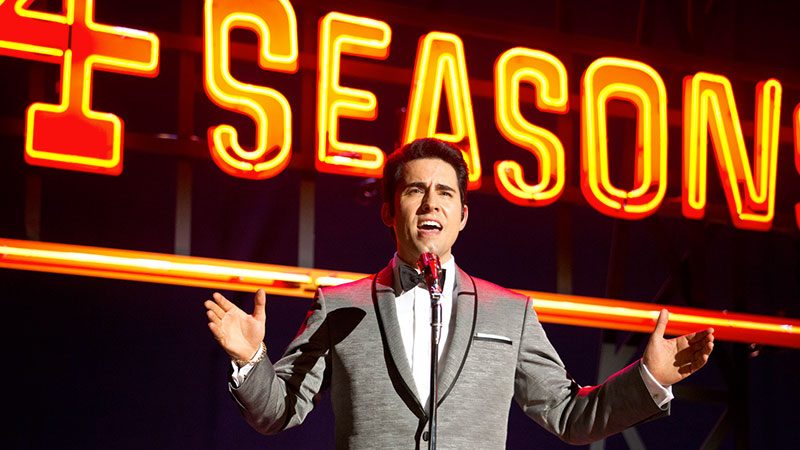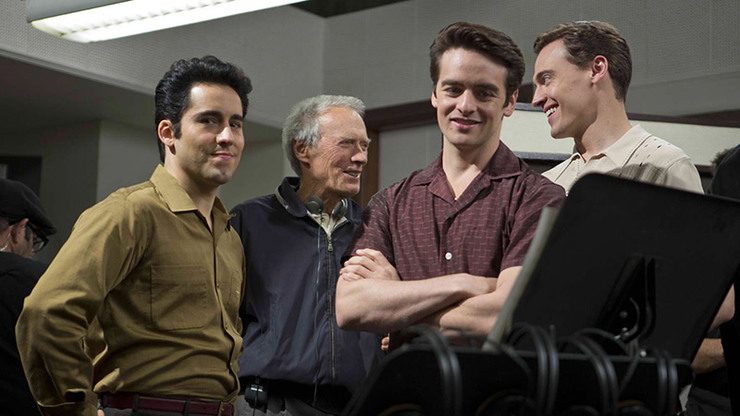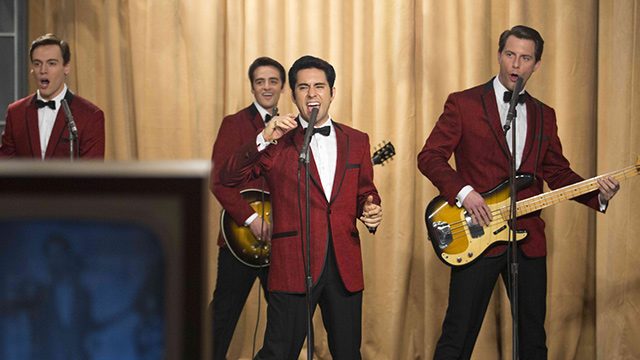SUMMARY
This is AI generated summarization, which may have errors. For context, always refer to the full article.

The road from stage to screen is almost always paved with good, although still commercial, intentions. Cinema, with its countless ways of reaching out to an audience, will always be the best medium to reach the masses. Good intentions notwithstanding, films based on stage plays, more specifically musicals, are often riddled with issues on adaptation.
Directors tasked to adapt musicals to movies are often faced with the dilemma of translating elements specific to the stage to cinematic language, without sacrificing the charms that made the original material successful and popular enough to be optioned. Certain decisions often lead to disastrous results.
Chris Columbus’ take on Jonathan Larson’s Rent (2005) had the Harry Potter director’s trademark Hollywood gloss and naiveté bastardize the rawness and look of the material. Joel Schumacher’s version of Andrew Lloyd Weber’s Phantom of the Opera (2004) concentrated more on the original play’s kitschrather than its world-famous musicality.
Understanding the material

Clint Eastwood, in adapting the Tony Award-winning Jersey Boys, had the good sense of understanding that the material he is faced with has all the makings of the traditional Hollywood biopic.
Its being a musical is nothing more than a stunt for better Broadway showmanship. Eastwood, whose films are often characterized by stirring heft, is clearly more interested in the story of Frankie Valli and his crew, which has themes and motivations that are right along his alley.
The narrative arc is all too familiar. Frankie, played by John Lloyd Young, who is reprising the role from the musical’s debut in Broadway, is a barber’s assistant with a uniquely beautiful singing voice. With pals Tommy de Vito and Nick Massi, played by Vincent Piazza and Michael Lomenda respectively, Frankie spends most of his free time either breaking the law or breaking ladies’ hearts with his distinctive crooning.
It is only when composer Bob Gaudio, played by Erich Bergen, came into the group that things start to pick up for the group. The Four Seasons is then formed. They get the recording contract they aspired for, with a collection of hits under their belt. However, as with most American rags-to-riches, obscurity-to-fame tales, everything is undone by clashing egos and inevitable vices.

The theater elements of the source material that remain, like the characters breaking the fourth wall to narrate their internal struggles or the upbeat curtain call where close-ups of the actors replace individual bows, serve the purpose of reminding the audience of the film’s roots. They also reveal that very rare opportunity where Eastwood as a director, sometimes rigid and straightforward to a fault, attempts humor and experimentation.
Eastwood, who was famous first as an actor before delving into directing with Play Misty for Me (1971), is in fact also a very capable musician. He composed the scores for most of his recent films, like Mystic River (2003), Million Dollar Baby (2004) and Flags of Our Fathers (2006). In all of his films, music, although scarce and subtle, is always impeccably placed to draw out the emotions he requires from his viewers.
It is no different with Jersey Boys. Although Eastwood mostly does away with the musical’s need to be constantly in a singsong state, he still manages to incorporate enough to make essential the various songs of the Four Seasons and Franki Valli, in either moving the narrative or adding emotional weight to the scenes. A lot of the film’s dull intervals are salvaged by great music.
A certain kind of elegance
Forget Broadway for a couple of hours. Let Eastwood do what he’s best at doing, which is to lace familiar stories with a certain kind of elegance that Hollywood has forgotten nowadays. Eastwood’s decision to filter out most of the theater elements from the material, all for the sake of being conventionally cinematic, pays off.
Jersey Boys is a safe endeavor. It fulfils its intent of telling the musical’s story to a much wider audience, although obviously with less pageantry and gaiety. That said, Jersey Boys suffers from too much earnestness, too much gravity, and too little irreverence, the same ailments that drive most biopics about musicians to eventual obscurity. Eastwood, without the benefit of the bells and whistles most musicals provide, seems to be powerless to the allure of churning out just another boilerplate drama. – Rappler.com

Francis Joseph Cruz litigates for a living and writes about cinema for fun. The first Filipino movie he saw in the theaters was Carlo J. Caparas’ ‘Tirad Pass.’ Since then, he’s been on a mission to find better memories with Philippine cinema.
Add a comment
How does this make you feel?
There are no comments yet. Add your comment to start the conversation.